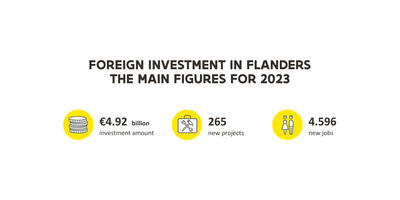
World-first PVC recycling for vinyl flooring in Flanders

The only one in the world
In 2023 alone, Unilin is investing EUR 20 million to roll out the new technology. This will allow the company, which is part of Mohawk Industries (US), to process not only the PVC from its own production, but also that of other manufacturers. The new installation is being built in an adjacent hall on Unilin’s Wielsbeke site in Flanders.
Laurent Meersseman, Head of R&D at Unilin Flooring: “We can’t yet show the installation. It’s top secret. Once it’s operational later this year, we will be the only company in the world that’s able to recycle PVC in all its types without loss of quality. In addition, the new line will allow much more lifelike wood designs to be printed on the vinyl planks, as we have been doing for some time with laminate.”
We will be the only company in the world that's able to recycle PVC in all its varieties without loss of quality.
One step at a time
From mid-2024 onward, about 10% of the LVT produced by Unilin, which it exports from West Flanders to anywhere in the world, should consist entirely of recycled PVC. “The first production line using the new tech will be in Wielsbeke. But in the years to come, we will phase out all older production lines and evolve toward using almost 100% recycled material,” explains Unilin Flooring CEO Ruben Desmet.
Sustainability is the battleground where the future of flooring is being fought.
Investment commitment
To launch the new tech, the initial investment comes with quite a price tag. Desmet: “By the time we have the whole technology and logistics up and running five years from now, the project will easily have cost EUR 100 to 150 million. The larger the scale at which we deploy the technology, the more we can recoup those investments.”


